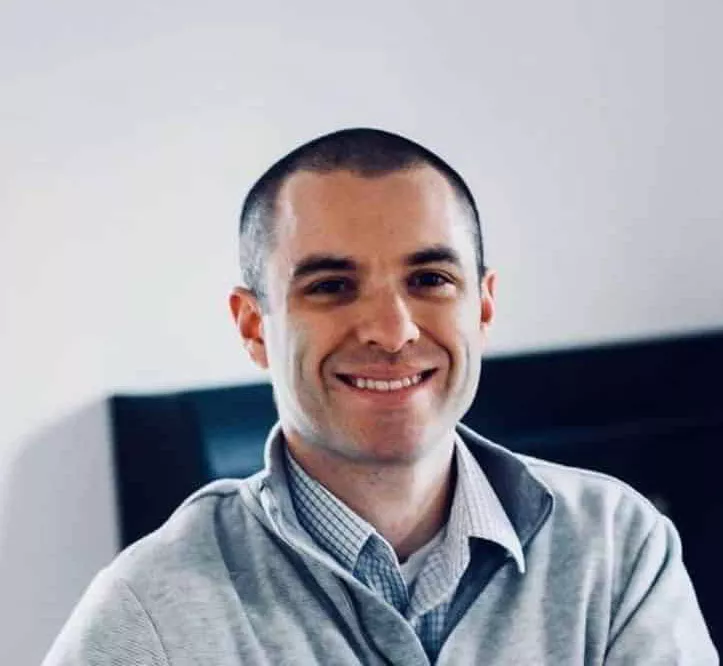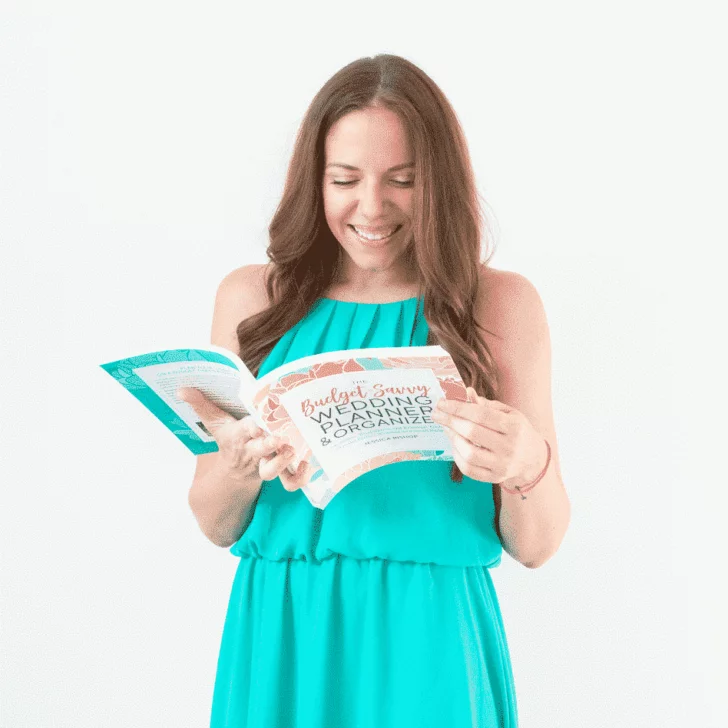For some, financial freedom is the end goal of all life efforts. To be financially stable requires basic financial education and the discipline to stay committed to a goal. If you are still clueless about handling your personal finance, chances are you will keep on making poor financial decisions until you find yourself buried in debt.
While personal finance management is complicated for young earners, it’s worth taking the time to understand how it could impact your future self. Thus, you need to edify yourself with the right ways of handling your finances.
We know how hard it is to seek answers by yourself, that’s why we got some help from 16 experts from the finance industry. We rounded up some of their best advice in acing personal finance management enclosed in five financial woes.
How can a beginner first get into budgeting correctly?
Budgeting is one of the crucial points that can show you how financially sound you are at the moment. If you don’t budget at all, chances are, you’re either way too wealthy to assess your finances, or you’re in denial of your current financial situation. With budgeting as a serious matter, here are some advice we got from the experts across the Finance realm:

Allocate your total income to your planned expenses and give a job to the money remaining.
AMY BLACKLOCK
WOMEN WHO MONEY, CO-FOUNDER
The beginning step to budgeting is clearly understanding what's coming in and what's going out—all household income and all household expenses. Not just rent or car payments, but every dollar spent from meals-on-the-go, to your mom's birthday gift, to the latte on the way to work. Plus the semi-annual auto insurance bill and your yearly gym membership. Once you know precisely what your expected expenses will be and your anticipated income from your salary, bonuses and commissions, refunds, gifts, etc. you can develop a spending plan. Allocate your total income to your planned expenses and give a job to the money remaining. ‘Spend’ it on paying off debt faster, saving for a home, or investing for your retirement years.
But budgeting doesn’t only require one to comprehend how much they have and owe; there are still other variables at play to master budgeting. Mindfulness and commitment are some of these.

Have the correct mindset to understand your ‘why’ and plan to be successful.
RYAN LUKE
ARREST YOUR DEBT, FOUNDER
To be successful with budgeting, you need to make sure you have the correct mindset to understand your ‘why’ and a plan to be successful. One of the most common problems people face is they quickly lose motivation because changing money habits is hard. Using a visual motivator such as a debt payoff coloring page or a list of financial goals you can display in a place you will see it daily can help you stay motivated and with the plan. Defining your ‘why,’ and following a budget plan from day one will help you start off on the right foot.
On another note, budgeting becomes easier when you complement it with innovative tools. Not only does your budgeting become more accurate, but it also becomes less time-consuming in managing your personal finance.

With data, you can start adjusting how much you're spending.
JIM WANG
BEST WALLET HACKS, FOUNDER
Use a tool that can automate the data collection as easily as possible—an app like Mint can link into your accounts and track your expenses for you. From there, you have a better understanding of where your money is going and you can begin to set targets for yourself. You won't know unless you have the data and an app is the easiest way to do it. From there, you'll want to think about the different spending categories and whether you are spending too much or too little. That's really up to you and your savings goals, but with data, you can start adjusting how much you're spending.
What according to you is the best way to keep tabs on expenses?
Tracking expenses is a surefire way to understand your spending habits further. Skipping to monitor where your money goes just shows how poorly you manage your personal finance. Here are what the experts have to say about it.

Create a regular day of the week where you sit down and categorize your expenses.
JEFF PROCTOR
DOLLARSPROUT, CO-FOUNDER
Create a regular day of the week where you sit down and categorize your expenses. Doing it regularly makes it easy to see where you're overspending and what you need to change. Try to do this at the same time every week so it becomes a regular part of your life. And remember that it's okay to change your budget if something comes up.
The other experts we asked, believe in the convenience of utilizing your bank to check your expenses. After all, banks post your transactions in mere hours—consolidating every cost incurred in one place.

Have the correct mindset to understand your ‘why’ and plan to be successful.
KRISTY SHEN and BRYCE LEUNG
QUIZ LIKE A MILLIONAIRE, AUTHORS
MILLENIAL REVOLUTION, FOUNDERS
I like to avoid spending cash wherever possible because once you spend cash there's no record of it afterward. Pick a good credit card (preferably one that gives you cash back or travel rewards!) and put all your spending on that. That way, you have an electronic record of your spending that you can download later and put it into a spreadsheet or a budget tracking software like You Need a Budget.
In addition to using your bank accounts, there are several online tools available that ease up the maintenance of personal finance. These tools are well-recommended by experts as they automate all transactions incurred and organize them for you.

Online tools make it easier to aggregate all of your online accounts in one place so you can view your expenses and budget in one place.
RYAN GUINA
THE MILITARY WALLET, FOUNDER
CASH MONEY LIFE, FOUNDER
There are many ways to keep track of expenses. The best one is the one that works for you. Many banks and credit card companies make it easy to track your expenses online, directly within your account. This works great if you only use a small number of accounts. There are also online tools such as Mint and Personal Capital. These online tools make it easier to aggregate all of your online accounts in one place so you can view your expenses and budget in one place. Finally, some people use dedicated software or their own personalized spreadsheet. All of these can work—just pick the one you are most comfortable with and go from there.
How would someone start saving for retirement?
Saving for retirement is the smartest way to secure your future. Experts agree on a similar approach to saving for retirement—maximizing your IRA. IRA or an individual retirement account, is the account you set up with a financial institution to save for retirement with either tax-free growth or on a tax-deferred basis.

Starting early is in your best interest.
JESSICA BISHOP
THE BUDGET SAVVY BRIDE, FOUNDER
When it comes to saving for retirement, starting early is in your best interest. Starting early gives you more time in the market, which means more time for your money to grow. Some employers offer to match contributions up to a certain percentage, which is a great incentive to put money away for retirement. Check with your employer to see what types of retirement accounts they use and find out if they offer employer matching on your contributions. If not, consider starting an IRA of your own to contribute to, and aim to contribute the maximum allowance as a starting point.
If you are an employee, you have more options at hand. Your employers can be a helping hand in building your retirement savings through the 401(k) plan. This is the company-sponsored retirement plan for employees across the US.

Consider contributing enough to take full advantage of the company match.
NICK LOPER
SIDE HUSTLE NATION, CHIEF SIDE HUSTLER
Individuals can contribute up to $19,500, and many employers have some sort of company match program. At the very least, consider contributing enough to take full advantage of the company match because that's the best free money you'll probably ever find. On top of that, every dollar you contribute reduces your taxable income for this year.
But 401(k) and IRA are not the only options you have. They may be the most popular, but you can definitely try some other options to build that savings for your retirement.
Nowadays, a great option is to use cryptocurrency to build up your individual retirement fund. With the help of bitcoin IRA companies, you can save enough money to afford a comfortable retirement. But, be careful because many of these companies over-market themselves. If you're looking for a bitcoin IRA company that you can trust, find the list here.
With blockchain and cryptocurrencies, passive crypto income lets individuals earn by participating in diverse activities like staking, lending, yield farming, and DeFi protocols. By grasping the associated risks and rewards, they can navigate this landscape, enhance financial prospects, and embrace the digital asset management future.

The key is to save a significant chunk of your income for retirement.
JAMES M. DAHLE
THE WHITE COAT INVESTOR, FOUNDER
Often using your employer's plan is best, since they offer a ‘match’ on 401(k) or 403(b) contributions. The match is really like part of your salary; you don't want to leave it on the table. Once you put the money in the 401(k), you'll need to choose an investment. A lifecycle or target retirement fund that corresponds to your expected retirement date is a reasonable place to start and maybe even finish your investments. If no employer plan, a Roth IRA at a brokerage such as Vanguard or Fidelity offers similar investments. The key isn't really the accounts or the investments; the key is to save a significant chunk of your income for retirement. I recommend 20% for docs, but for most people starting early, 15% is probably enough to retire at standard retirement age and maintain your pre-retirement standard of living.
What advice would you like to give someone to prepare for rainy days?
In reality, no one knows when you’ll need to shell out funds because of unforeseen circumstances. To avoid the financial distress of lacking anything on hand, you should consider these professional advice that our experts shared.

Having an emergency fund can help prevent you from taking on high-interest rate debt.
MICHELLE SCHROEDER-GARDNER
MAKING SENSE OF CENTS, FOUNDER
My top piece of advice would be to have an emergency fund. An emergency fund is money that you have saved for when something unexpected happens. This can be something such as paying for bills if you lose your job (or if your hours or pay are cut), paying for a car repair, or a medical bill. Having an emergency fund can help prevent you from taking on high-interest rate debt.
It also counts to consider other playing factors in the field to assess how much you would need. Your available resources are one to take a look at.

Extra savings goes a long way to buffer life's unexpected curveballs.
BEN REYNOLDS
SURE DIVIDEND, FOUNDER
The amount of liquidity you have available determines how stressful an inevitable rainy day will be. An 'emergency fund' or extra savings goes a long way to buffer life's unexpected curveballs. On top of that, having no debt and access to credit provides a further shield from unforeseen adverse situations.
The key here is building your emergency fund enough to secure your finances for a couple of months. Without it, you are only putting yourself to more vulnerabilities that you don’t even know exist.

Start one now and save until you reach the goal.
GARY DEHART
INSIGHTFUL ACCOUNTANT, PUBLISHER AND MANAGING PARTNER
Every situation is different. Do you have an emergency fund of at least $1000? no. Start one now and save until you reach the goal. Only spend it on emergencies, not latte's! Christmas is not an emergency. Your car breaking down is. Continue saving until you have enough money to cover three months of expenses on top of the $1000 emergency fund.
What are the basics of investment?
Nobody will argue that investments are a waste of time. It is, after all, an outlet to diversify your income sources. However, investments can be tricky for first-timers. Here’s what the experts had to say about it.

Time is the most important aspect of investing.
JOHN SCHMOLL
FRUGAL RULES, FOUNDER
Time is the most important aspect of investing. The sooner you start, the less you must save. It seems counterintuitive, but it's the truth. If you're starting with a small amount, it may feel pointless, but it will help you a lot in the long-term.
Whatever your approach to investing, it should always suit what your current financial position is.

It's best to seek the advice of a professional so you can get advice that is tailored to your own personal situation.
MARC ANDRE
VITAL DOLLAR, FOUNDER
Everyone's situation is different, so what's right for someone else may not be right for you. Investing can be intimidating if you've never leaned much about it, but the basics really aren't complicated. There are a number of really simple investments, like mutual funds and ETFs that are much easier starting points than investing in individual stocks. If you feel like you need some help, it's best to seek the advice of a professional so you can get advice that is tailored to your own personal situation.
What’s wonderful about investing is that you have tons of platforms to choose from, and you are allowed to not just settle on one. The more, the better, as they say.

Diversification is super-important.
BRIAN MARTUCCI
MONEY CRASHERS, FINANCE EDITOR
Diversification is super-important. You don’t want to be overinvested in any particular type of security or corner of the market. If you’re not sure where to start, figure out the year you expect to retire and select a low-expense target-date mutual fund closest to that date.
Investing might sound overwhelming at first, but once you get the hang of it, you’ll understand its importance in your personal finance.

Investing on a regular basis and staying invested
LANCE COTHERN
MONEY MANIFESTO, FOUNDER
Investing can be simple or complicated. I personally believe in index investing for the long-term. For this, you need to do some basic research to understand how it works and which investments to pick. Then, the key is investing on a regular basis and staying invested.

Create and maintain a budget
AZIZ
DC MOBILE NOTARY, FOUNDER
This will help to keep track of your income and expenses, and will ensure that you are not spending more than you can afford. It is also important to have an emergency fund in place so that you can cover unexpected costs if they arise.
Wrapping it up:
Most of the experts agree to the importance of assessing your financial situation first before employing various personal finance strategies. After all, not everything applies to everyone.
But, in the subject of keeping your finances intact, most of them had the common denominator in the following areas:
- Budgeting is way easier done when you understand why you are doing it. Without fully knowing “why,” you are just simply counting your money and bills. Another highlight is the convenience of online tools and apps to automate your budget.
- Organization is key to keeping tabs on your expenses. You can either categorize your expenses manually, use your bank records, or an online app to consolidate all costs. The secret relies on having an organized yet convenient tracking system to further save you from spending more.
- The earlier, the better it is in saving for your retirement. You should not miss the opportunity of saving more by maximizing your 401(k) plan with your employer and investing in an IRA of your own.
- Preparing for the rainy days requires you to build a robust emergency fund that can cover at least three months’ worth of expenses. Along the way, you will need to get rid of poor spending habits to build your emergency fund successfully.
- There’s no reason to feel overwhelmed with the idea of investing. It is, after all, a safety net you build to secure your future. The necessary aspects you need to consider include when you start, diversification, and the commitment to stay invested in it.
Keep these expert tips in mind to get to the financial position you aspire to have. One way or another, you’ll learn the importance of looking out for your personal finance, so better do it the right way the first time.
Ready to delve into more successful personal finance strategies? Click here to get started.


